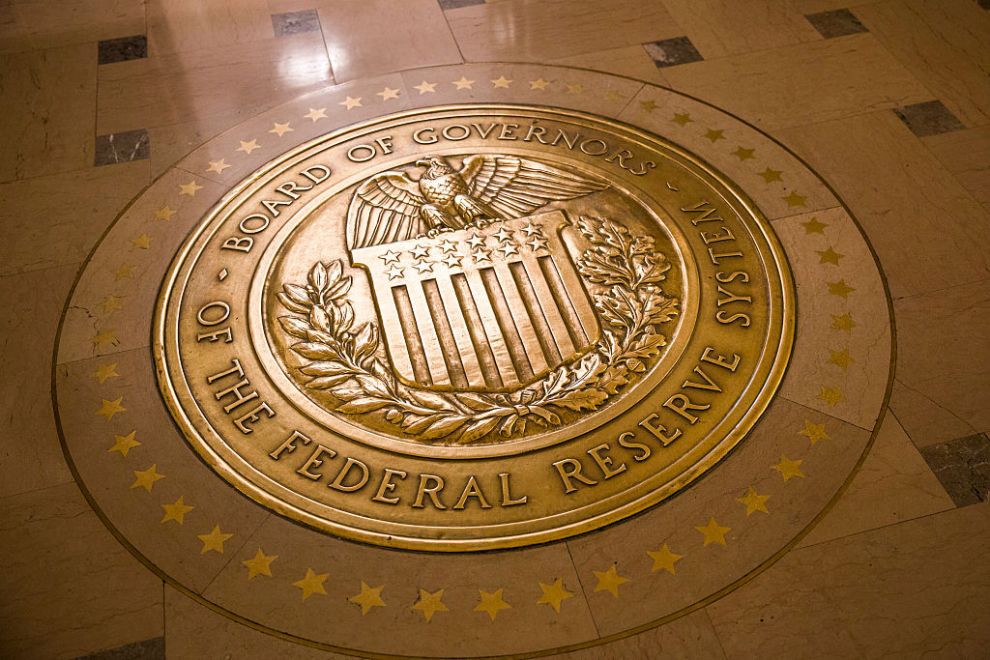The Fed has warned Deutsche Bank about money laundering. Wsj report

What the Federal Reserve told Deutsche Bank. The deepening of the Wall Street Journal
The Federal Reserve told Deutsche Bank in recent weeks that the lending group is failing to address persistent deficiencies in its anti-money laundering controls, according to people familiar with the matter .
The Fed's frustration has escalated to the point where the bank could be fined, people said.
Deutsche Bank has paid substantial resources to address repeated shortcomings and penalties related to the authorization of suspicious transactions. The Fed told Deutsche Bank that instead of making progress, the German bank with a large presence on Wall Street is backtracking. The regulator said some of the money laundering control issues require immediate attention, according to rumors.
A spokesperson for Deutsche Bank said the bank does not comment on the dialogue with regulators. A Fed spokesman declined to comment.
The Fed's harsh words contrast with the bank's message that it has worked diligently to improve its systems and has filed most of its legal problems in the past.
The Fed's latest warning comes four years after classifying Deutsche Bank's US operations as in "tough conditions," a rare reproach for a large bank. In May 2020, it issued a new warning about the bank's money laundering controls.
In 2020, Deutsche Bank also settled with the New York Department of Financial Services over the bank's role as a correspondent bank in one of Europe's largest money laundering scandals and for failing to properly monitor its dealings with the late financier and convicted of sex offenses Jeffrey Epstein.
In 2017, the Fed fined Deutsche Bank $ 41 million for failing to maintain an effective anti-money laundering program.
Deutsche Bank is Germany's largest lender and as a Fed-regulated dollar clearing bank, it is a major player in global financial transactions.
Banks are required to monitor the flow of money through their networks to prevent the proceeds of criminal activities from moving into the economy. They are required to know who their customers are and to report transactions that indicate potentially illegal activity to the authorities.
Deutsche Bank's financial situation has improved after it initiated a review in 2019 to sharply cut costs and exit some operations, including stock trading in the United States.
On Thursday, Deutsche Bank officials used a bullish tone at the bank's annual shareholder meeting, saying the lending group has found its position and is regaining confidence in the market. He also said he wants to play an active role in bank consolidation in Europe.
“There has been a fundamental shift in the way people view our bank,” CEO Christian Sewing said in a speech.
Sewing told shareholders that the bank has "significantly strengthened our control systems," but added that "we are also aware of the areas we need to improve", including its efforts against financial crime.
The bank has struggled to shake off its reputation for rough checks. In April, BaFin, the German financial regulator, ordered the bank to take additional measures to safeguard against money laundering. BaFin said Deutsche Bank had to comply with due diligence obligations, especially regular customer reviews. It expanded the role of a monitor it appointed in 2018 to monitor implementation.
Following the BaFin order, Deutsche Bank said it had significantly improved its controls, spending around $ 2.4 billion and increasing its anti-money laundering team to more than 1,600 in the past two years. He acknowledged that he had more work to do.
Deutsche Bank also remains under the surveillance of external monitors appointed in 2017 by the New York Department of Financial Services as part of a "mirror trades" case settlement, in which the bank moved $ 10 billion in Russian client money. out of the country.
The Wall Street Journal reported last November that controllers were alarmed about a possible expansion of the bank's business in Russia. In October, they told the bank that efforts to improve its operation weren't enough to offset the large risks of doing business with Russian customers, and that the bank should close its business there instead.
Earlier this month, the bank appointed Joe Salama, its US general counsel who was responsible for negotiating recent regulatory deals with US authorities, to lead its global financial crime unit. The move was intended to improve the bank's relationship with regulators, according to people familiar with the situation.
Unlike his predecessor, who was based in Frankfurt, Mr. Salama will split between Germany and the United States.
This is a machine translation from Italian language of a post published on Start Magazine at the URL https://www.startmag.it/economia/fed-deutsche-bank-riciclaggio-denaro/ on Sun, 06 Jun 2021 06:00:13 +0000.
